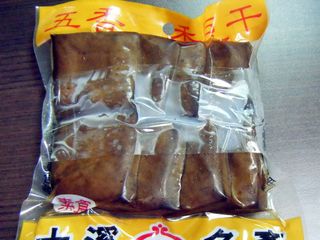Cases of Red Bull are being pulled from store shelves by officials in several countries due to the detection of cocaine in the products.
Trace amounts of the drug (0.4 micrograms per liter) were detected in Red Bull Cola by German authorities two weeks ago.

A few days later, Germany’s Federal Institute for Risk Assessment said that the cocaine level was too low to pose a health risk. However, bans on the drink were initiated in several German states due to concerns that their sale may violate narcotics laws.
When the Department of Health in Taiwan heard about the German’s discovery, they decided to test Red Bull Energy Drink—another product by the same manufacturer. They, too, found 0.4 micrograms of cocaine for each liter tested.
A statement made by the folks at Red Bull two days ago said,
"It would have been absolutely impossible for Asian (or any other) authorities to have found traces of cocaine in Red Bull Energy Drink. We believe that Asian authorities mistakenly applied concerns about Red Bull Simply Cola to Red Bull Energy Drink, a completely different product with an entirely different formula. Nevertheless, we had Red Bull Energy Drink product samples from Asia analyzed by an independent and accredited institute and confirmed that Red Bull Energy Drink does not contain any cocaine."
The same day, officials at the Centre for Food Safety in Hong Kong said a laboratory analysis found 0.1 and 0.3 micrograms of the illegal drug per liter in samples of Red Bull Sugar-free, as well as Red Bull Cola and Red Bull Energy Drink.
Are they lying, too, Red Bull?
The remainder of the statement by Red Bull said,
 "A German authority had raised concerns regarding the use of de-cocainized coca leaf extract in Red Bull Simply Cola. …
"A German authority had raised concerns regarding the use of de-cocainized coca leaf extract in Red Bull Simply Cola. …
"De-cocainized coca leaf extracts are used as flavoring in food products around the world and are considered to be safe. Indeed, in 21 C.FR. 182.20, the Food and Drug Administration regulations provide that it is acceptable and safe to use de-cocainized coca in food products in the United States."
Each country—and each consumer for that matter—is entitled to determine the level of risk that is acceptable to them. Food producers should respect that, and provide the information needed to make those determinations.
They should also provide sufficient data when calling anyone a liar. People who are already pulling products likely need more data than results of an undisclosed number of samples tested by a single, unnamed institute. Less arrogance is definitely in order.
 This situation was first discovered in July, when the temperature in one frozen food truck reached 33 degrees Celsius, which is grossly in violation of food safety laws. Therefore, the CPC decided to cooperate with local health and transportation authorities to inspect additional logistics companies.
This situation was first discovered in July, when the temperature in one frozen food truck reached 33 degrees Celsius, which is grossly in violation of food safety laws. Therefore, the CPC decided to cooperate with local health and transportation authorities to inspect additional logistics companies.




 company’s healthcare room but it was useless. The workers were then brought to hospitals.
company’s healthcare room but it was useless. The workers were then brought to hospitals. potty-train his 10,000 pigs in late 2009, it said.
potty-train his 10,000 pigs in late 2009, it said. Taiwan has seen eight botulinum poisoning cases involving 11 people since April. One person was killed, five remain hospitalized and five others have been discharged from hospitals after treatment.
Taiwan has seen eight botulinum poisoning cases involving 11 people since April. One person was killed, five remain hospitalized and five others have been discharged from hospitals after treatment.
 "A German authority had raised concerns regarding the use of de-cocainized coca leaf extract in Red Bull Simply Cola. …
"A German authority had raised concerns regarding the use of de-cocainized coca leaf extract in Red Bull Simply Cola. … School medical personnel immediately performed CPR on the student and an ambulance was called which rushed him to a nearby hospital, but the student was pronounced dead. The cause of death remains unclear, but doctors said that the student may have choked to death
School medical personnel immediately performed CPR on the student and an ambulance was called which rushed him to a nearby hospital, but the student was pronounced dead. The cause of death remains unclear, but doctors said that the student may have choked to death